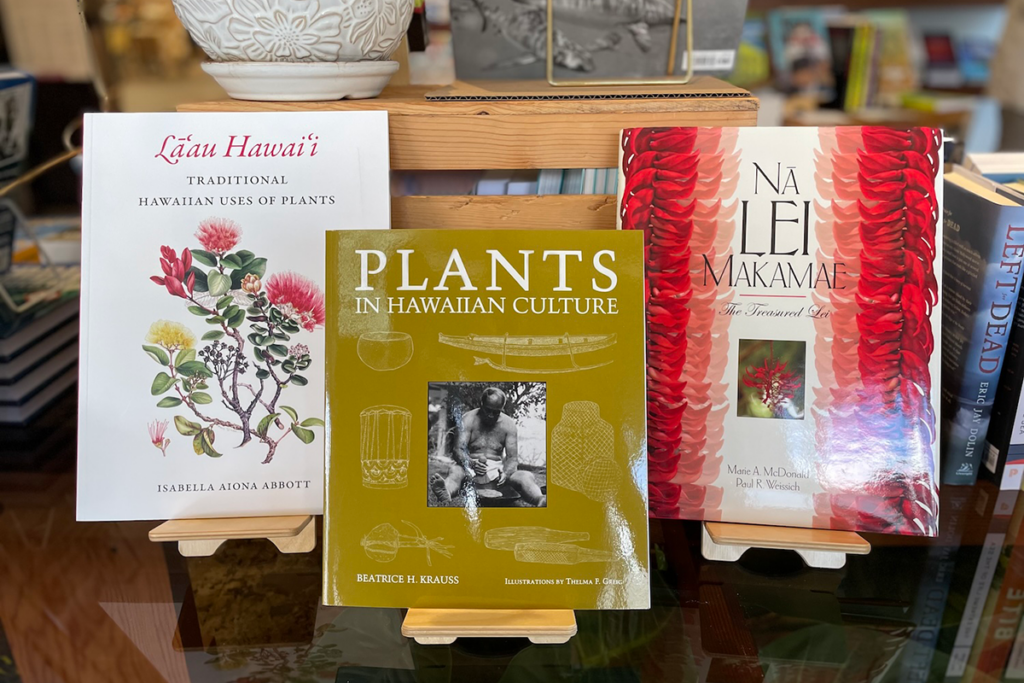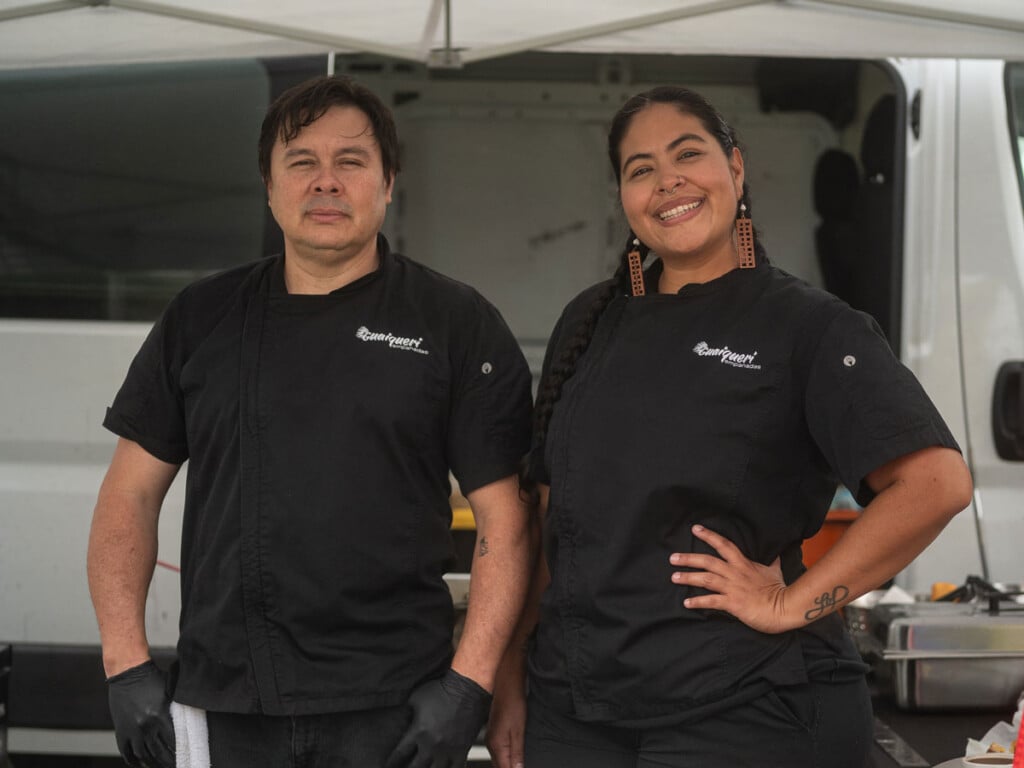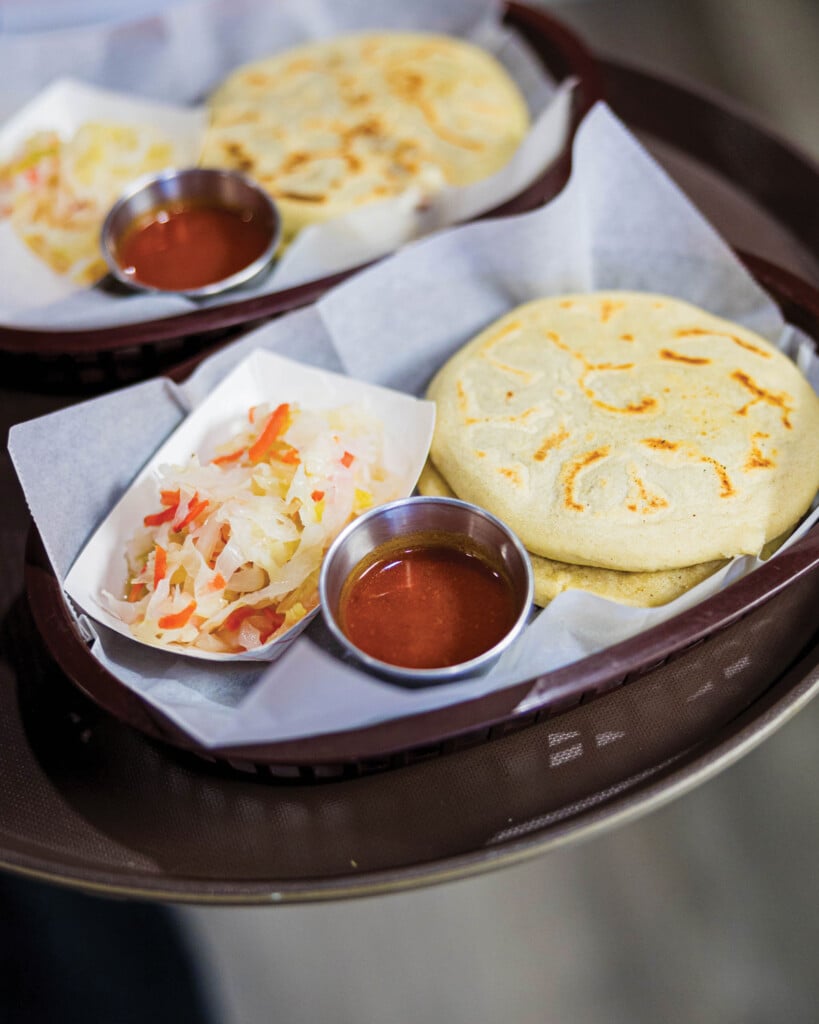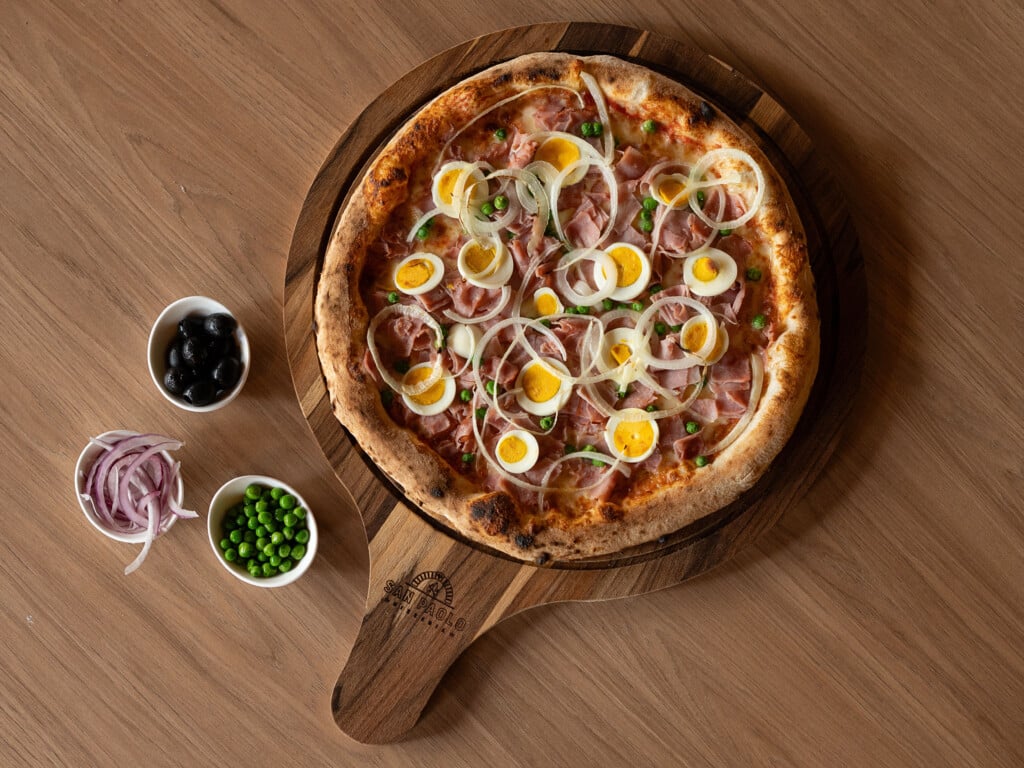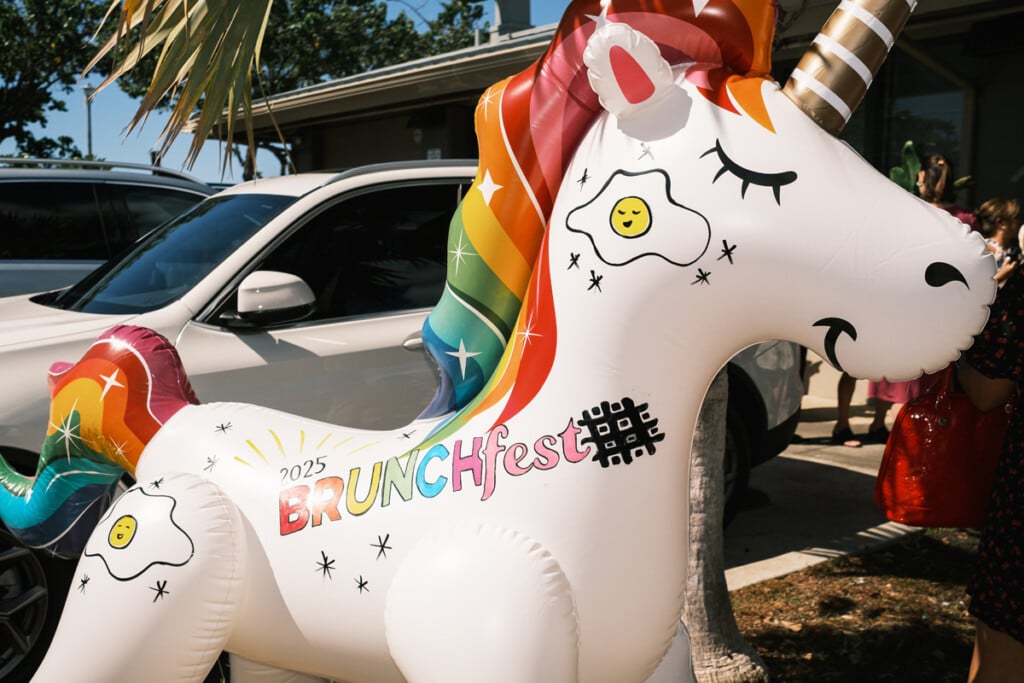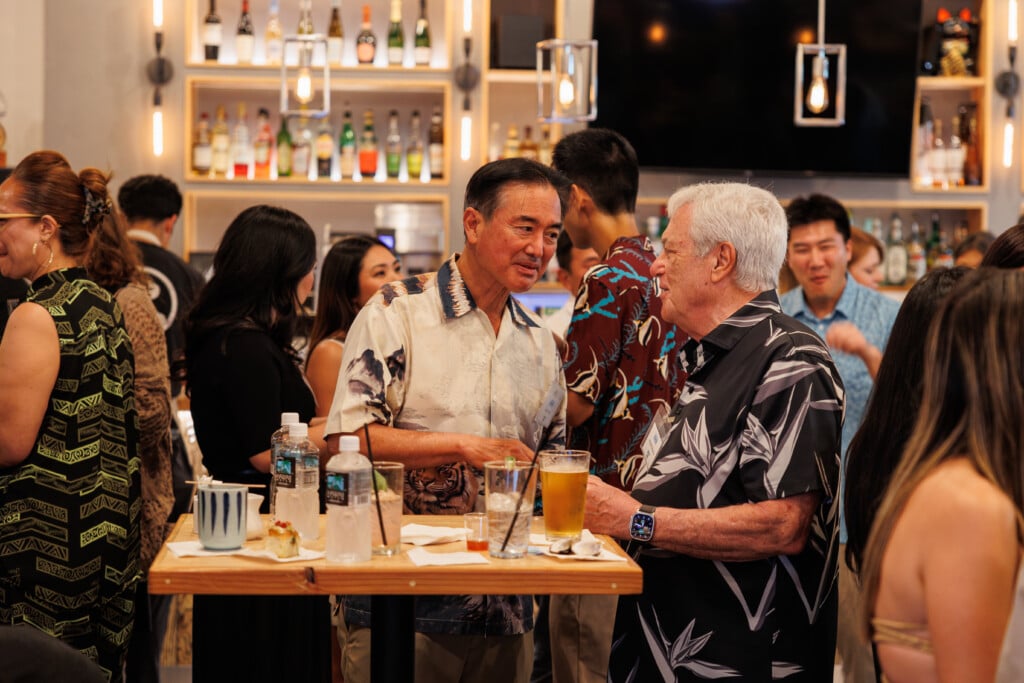Writing Into Peril: A Conversation With Local Author Jessie Ren Marshall
Marshall’s upcoming book, Women! In! Peril!, has been named an Indies Introduce pick and an April 2024 Indie Next pick by the American Booksellers Association.

Photo: Courtesy of Jessie Ren Marshall
Jessie Ren Marshall is a creative wonder. Both an esteemed playwright and forthcoming debut author of the highly anticipated story collection Women! In! Peril!, Marshall works in a variety of genres to tell compelling, fiercely feminist stories that at their heart portray a shared humanity and profound sense of hope. Whether writing Blurts in Deep Space or encountering an immaculate conception, the diverse cast of characters in Marshall’s stories are united by their wry humor, big personalities and insistence on leaving a mark on their worlds—and on the book’s readers.
With roots on both O‘ahu and Hawai‘i Island, Marshall and her family have a long history in Hawai‘i and among various local communities. An award-winning playwright, Marshall won the Kumu Kahua Hawai‘i Prize for her play Hapa Girls and was a semi-finalist for the Eugene O’Neill National Conference for her musical Pele & The Hi‘iakas. Women! In! Peril! is her fiction debut. After eight years of teaching high school English and creative writing at various schools in Hawai‘i, Marshall now lives off-grid with her dogs on Hawai‘i Island (a dream come true).
Megan Kamalei Kakimoto, author and bookseller at Da Shop: Books + Curiosities, caught up with Marshall in the weeks leading up to the publication of Women! In! Peril! to chat all things short stories, writing into the bizarre and her relationship to Hawai‘i (including her favorite local snack, of course).

Photo: Courtesy of Jessie Ren Marshall
MKK: Can you describe Women! In! Peril! from your perspective?
JRM: Sure! It’s a story collection that’s got a little bit of everything. A spaceship full of women searching for “Planet B” after a climate disaster? Check. A rich girl working in a strip pub in London? Check. Straight married ladies and skeptical lesbians engaging in magical thinking? Check. Teen angst, parental angst and will-anyone-ever-love-me angst? Check, check and check.
What unites the stories is that they’re darkly funny and a little twisted. I tend to channel my anxiety about humanity into my writing, but ultimately, the women in these 12 stories are moving towards transformation, and in that process, they find hope for a better future.
MKK: As a fellow lover of short stories, I’m curious what draws you to the short story form?
JRM: Short stories are like plays or poems or movies—a potent drama meant to be consumed in a single burst. Because of this, they need to be tightly constructed, and I try to make each new thread I introduce both entertaining and functional.
A short story is a small machine, a meaning-making machine, and when it really works, the reader gets to witness a kind of magic show in which ordinary things become extraordinary. Right before our eyes, we see the unexpected—a bird disappearing into a top hat, the paper flower blooming on its own, a lovely woman being sawn in half.
MKK: The way you play with structure in these stories is exhilarating. Some of my favorite stories in this collection include the titular story, which is written in a series of robot “blurts,” and “March 6, 2009,” which is partially depicted in the form of a play. What drove you to various experimental forms while putting together these stories?
JRM: I’m so glad you enjoyed the formal experimentation. Each story in this book demanded to be told in its own mad way. With the ones you mentioned, I tried to use more conventional structures at first. But the stories resisted.
The title story, for instance, felt flat and lifeless until I tried telling it through Tweet-like Blurts. This added an extra layer of irony and humor because the Blurts create tonal contrast and undercut the cinematic, high-concept plot—which might be too heavy on its own since it deals with mass grief, violence and the end of the human race—by filtering it through something as petty and mundane as social media.
In “March 9, 2009,” the play script was an extension of the idea of the performance and disassociation that can happen when dealing with trauma. The inciting incident is a woman being urged by her boyfriend to share a traumatic story from her past, and she doesn’t want to do it. She’ll do anything to avoid telling this story. By breaking suddenly into a script and using footnotes, the narrative interrupts itself and helps the woman distract the reader from the tale she’s reluctant to tell. And the cool thing is, that dance of avoidance becomes the story. When I was writing this one, a bunch of meta-stories started popping up in the margins, and I found those meta-stories, those meta-selves, to be really compelling.
SEE ALSO: 6 Books That Left a Big Impression on Da Shop Staff in 2023
MKK: I adore meta-stories! Along similar lines, how do you embrace the fantastical and the bizarre in your writing—what draws you to these modes, particularly when conveying human nature and shared human experiences?
JRM: I don’t know if other people feel this way, but I experience the world as a contradiction. Japanese aesthetics seem to appreciate this fact—the concept of mono no aware says the sunset is beautiful because it will not last. Happiness contains sadness. Joy contains loss.
It’s the same with the fantastic—even the most unexpected events (example: a world pandemic) are also incredibly mundane, while ordinary moments (example: drinking water) are fueled by molecular magic and sit on a complex tower of human inventions. The everyday is extraordinary.
But humans aren’t comfortable with contradiction. We like to categorize things, to name them and put them away. We erase strangeness and replace it with knowledge.
But remember when we were children? The world was wild. We didn’t see three different trees and try to confine them to our idea of “tree.” Instead, we experienced each tree as if it were its own, rare thing.
By writing about things that are just a little bit off, I hope to bring some of that wild unknowability, that sense of discovering the world, back to our brain cells.
MKK: This title is…everything. How did you arrive at it?
JRM: It popped in my head one day, and I thought it was perfect. Because I’m an overthinker, I quickly fell into doubt—was it too silly? Too women-centric? Too pulp fiction? But I love the campy vibe and the too-muchness of those three exclamation marks. The title hints at the gallows humor in the book, the tongue-in-cheek laughter that makes dire circumstances more bearable, and it bridges the genre gap between books that are trying to be more commercial and entertaining and those aiming to be more literary and profound.

Photo: Courtesy of Jessie Ren Marshall
MKK: Can you tell us a little about your relationship to Hawai‘i? Does your time in Hawai‘i figure into your writing?
JRM: Absolutely. The Islands are a transformative place. Living here has made me a different person, one whose actions are guided by the impact they will have on the ‘āina. As an artist, I’ve become obsessed with exploring the relationship between mankind and nature.
My mom grew up in Mānoa, but after she met my dad, she moved to Central Pennsylvania. For my entire life, I’ve witnessed her longing to return home. I think most people from Hawai‘i can relate to that feeling, especially when so many kama‘āina and kānaka maoli are being displaced because of the untenable cost of living here.
I moved to Hawai‘i because I fell in love with a local boy and he wanted to come home. The two of us lived with my widowed grandmother on Queen Street, and I’m so glad I got to experience those years in Honolulu with her.
But even then, I felt a strong connection to Hawai‘i Island, where my grandmother and great-grandmother had lived. I love this moku’s unmanageable, wild beauty and its cycles of creation and destruction. The land of Hawai‘i and the culture of the Hawaiians is so powerful, so deeply rooted, it feeds me in many ways. And it’s good that my family is from here because that connects me to the past. In a way, my life here completes the circle and is the fulfillment of my mom’s desire to return home.
MKK: You’re also a playwright who previously won the Kumu Kahua Hawai‘i Prize. Does your experience playwriting inform the way you approach fiction and short stories?
JRM: Playwriting has definitely honed my ear for dialogue! And it gave me an appreciation for subtext. And pacing! Have you ever been in the audience and felt the crowd grow restless when a scene goes on too long? The same thing can happen in a book. And coming from theater may have helped me think about “stage picture” more than some fiction writers do; I don’t know, really. Theater is just a fundamental part of who I am, even though I’ve been focusing on prose lately.

Photo: Courtesy of Jessie Ren Marshall
MKK: Favorite local snack?
JRM: When I’m being a good vegetarian, the answer is mochi crunch popcorn sprinkled with furikake. When I’m a bad vegetarian, the answer is lau lau. But listen! I only eat the leaves and give the pork to my dogs, so it doesn’t fully count! Gah! I’m so sorry, sweet pigs!
MKK: Where do you like to write?
JRM: Anywhere but my desk. I built my own desk out of reclaimed pine shelves from Kona Bay Books, and I truly love my desk, but…when I sit there it reminds me of working in an office. So I prefer to ruin my lower back by lounging on the sofa, or in the zero gravity chair or in bed. Preferably with my dogs napping nearby.
MKK: What book(s) are you reading now? What’s on your bookshelf that you’re absolutely loving?
JRM: One of the really cool things they don’t tell you about publishing a book is that it brings all these amazing artists deeper into your sphere. And you get to read books early, before they’re published! So I’ve been reading more widely with a desire to amplify other voices. In other words, I’m currently reading like fifteen books?! It’s a little nuts.
I can’t get over how good C Pam Zhang’s In the Land of Milk and Honey is. I’m enchanted by the sentences. I’m jealous of the sentences.
Michelle Hart’s We Do What We Do in the Dark and Kiley Reid’s Come and Get It are great campus novels; the latter offers delicious class commentary and the former conveys a blatant yearning that I totally recognize from my wayward youth.
Another great upcoming novel, out in April, is Clare Beams’ The Garden, a suspenseful gothic about pregnancy and miscarriage and bringing the dead back to life.
Of course, I loved your book, Every Drop Is a Man’s Nightmare! There’s such an unflinchingly real and feral Hawai‘i in those pages! They’re like dark spells, those stories, with death and aliveness and mixed-plate pains and passions. To me, that’s what living here means. You don’t just get to experience one thing. You get to taste all the things.
SEE ALSO: 5 Books Local Authors Couldn’t Get Enough of in 2023
Jessie Ren Marshall’s debut story collection, Women! In! Peril!, will be published by Bloomsbury on April 2, 2024, and can be pre-ordered anywhere books are sold. Her writing has appeared in places like New England Review, Electric Literature, ZYZZYVA, Chicago Review of Books, The Common, Joyland and the New York Times. She has an MFA from New York University and her work has been supported by Millay Arts, the KHN Center for the Arts, and the Community of Writers at Squaw Valley. She lives off-grid with her dogs on Hawai‘i Island.
jessierenmarshall.com, @jessierenmarshall
Megan Kamalei Kakimoto is the Japanese and Kanaka Maoli author of the story collection Every Drop Is a Man’s Nightmare (Bloomsbury 2023), a USA Today national bestseller. Her work has appeared in The Guardian, Granta, Joyland and elsewhere. She has been a finalist for the Keene Prize for Literature and has received support from the Rona Jaffe Foundation and the Bread Loaf Writers’ Conference. She received her MFA from the Michener Center for Writers and is a Visiting Faculty in Fiction at Antioch University Los Angeles. A Fiction Editor for No Tokens journal, she lives in Honolulu.
megankakimoto.com, @megankkakimoto
SEE ALSO: Megan Kamalei Kakimoto’s Debut Book Has the Literary World Buzzing
Da Shop: Books + Curiosities, 3565 Harding Ave., open Wednesday through Sunday from 10 a.m. to 4 p.m. (808) 421-9460, dashophnl.com, @dashophnl
